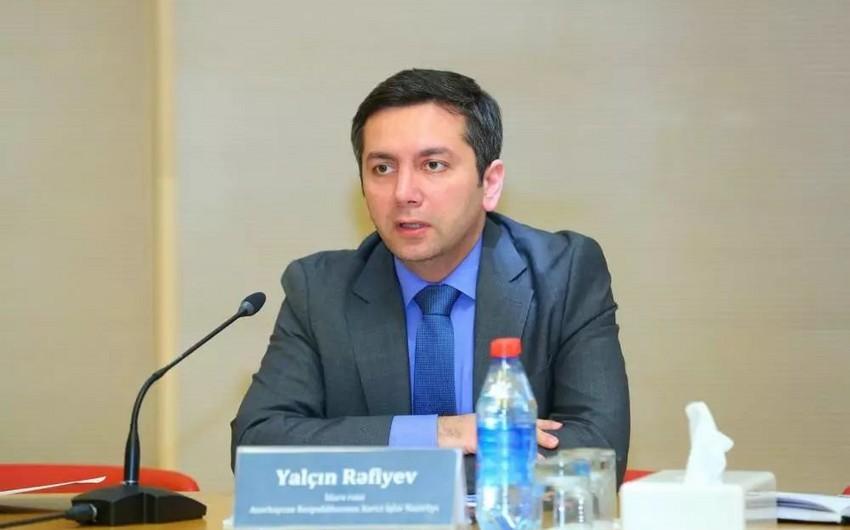Lead negotiator: COP29 will be litmus test for Paris agreement Event's future prospects in an interview with Indian media
The Economic Times of India has published an interview with Yalchin Rafiyev, Azerbaijan's Deputy Foreign Minister and chief negotiator for COP29, emphasizing that Baku will serve as a pivotal moment for the global climate community. Caliber.Az reprints the dialogue.
Azerbaijan, host of the annual UN climate meet COP29, has the responsibility of guiding countries to agree on ways to undertake efforts to tackle climate change at the speed and scale that is necessary to limit global warming to 1.5°C above pre-industrial levels.
"Baku will be a moment of truth for the whole climate community, a litmus test for the Paris Agreement," said Yalchin Rafiyev, Azerbaijan's Deputy Foreign Minister and COP29 lead negotiator, explaining the criticality of the annual UN climate talks to be held in Azerbaijan's capital city of Baku.
Azerbaijan's vision for COP29 rests on two pillars - enhancing ambition and enabling action.
The "ambition" pillar comprises the third instalment of nationally determined contributions capturing every country's climate targets, national adaptation plans, and the first round of transparency reports that sets out detailed information of climate action, which according to COP29 lead negotiator, will build trust and guide investments and financial flows.
The second pillar, "enabling action", comprises a fair and ambitious new climate finance goal, finalising the rules and regulations for Article 6 to leverage carbon markets, strengthening global financial institutions and increased private investments, access to technology, and capacity.

Rafiyev explained that the two pillars of Azerbaijan's vision of COP29 are "mutually reinforcing".
The transcontinental country located in the southern Caucasus region, a relatively quiet participant in the UN climate talks, is charged with delivering an agreement on climate finance, especially funds that developed countries are required to provide developing countries. "If we succeed in adopting a new goal for climate finance then we can really trust the climate system's architecture to deliver. If we fail to agree on climate finance, then most countries will start to question the relevance and validity of the Paris Agreement," said Rafiyev.
Rafiyev frames the Baku COP as an "enabling" COP. "If we have this decision (on finance) together, we can enable all those ambitions announced so far; if we cannot succeed in agreeing on finance, it means we may not have NDCs that are as ambitious as we need them to be," said COP29's lead negotiator.
Negotiations during midyear meet in Bonn on climate finance or the new quantified collective goal, that is the minimum target amount that developed countries will commit to provide developing countries every year, failed to make much progress. Mindful of the display of deep differences among countries, particularly the question of how much and which countries are obligated to provide it, Rafiyev said that such divergences of views were "perfectly normal at this stage".
The lead negotiator said that heads of delegation will be meeting later this month in Azerbaijan. "We will bring together the heads of delegations to continue the positive momentum that we built here in Bonn in an informal manner - an informal exchange of opinions, identifying the major points of convergence and addressing divergences," said Rafiyev.








